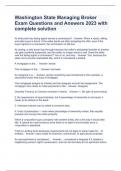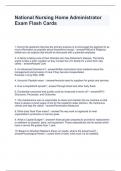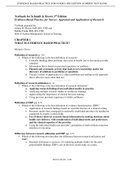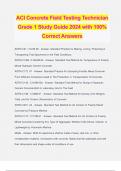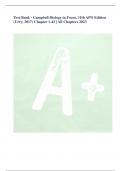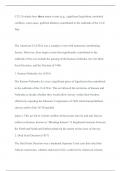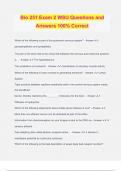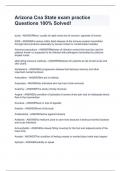Exam (elaborations)
TEST BANK The Analysis of Biological Data 3rd Edition by Michael and Dolph | All Chapters 1-21.
TEST BANK The Analysis of Biological Data Third Edition by Michael C. Whitlock and Dolph Schluter. ISBN 6299. All Chapters 1-21. TABLE OF CONTENTS Chapte r 1 Statistics and samples Chapter 2 Displaying data Chapter 3 Describing data Chapter 4 Estimating with uncertainty Chapter 5 Probability Chapt...
[Show more]





